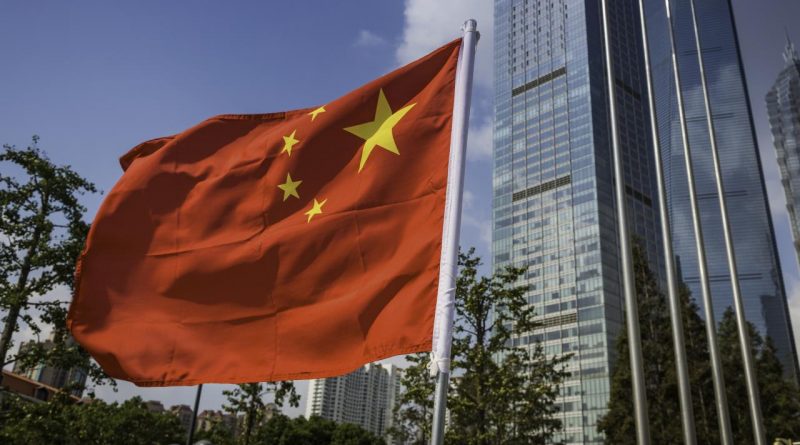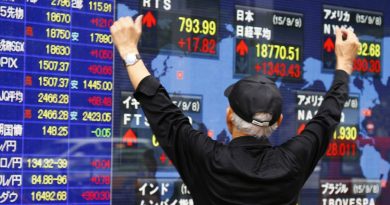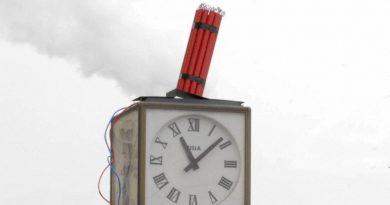The hidden risks of China’s war on debt (Nikkei)
HONG KONG — When the Bank of Jinzhou, based in China’s northeastern rust belt, went public on the Hong Kong stock exchange two years ago, its finances were a wreck. It had issued 34 billion yuan ($5.36 billion) worth of “wealth management products” that are hallmarks of China’s sprawling “shadow” banking sector, and it was owed 9 billion yuan by an unnamed borrower who was under investigation by Hong Kong regulators. The bank, like many others across China, was loaded with risky debt — the kind that China’s leadership in Beijing is now determined to stamp out.
After a massive buildup over the past decade, the government is waging an all-out war on debt. In December, President Xi Jinping said slashing debt was one of the “critical battles” Beijing would fight over the next three years, along with reducing pollution and poverty. Regulators have cracked down on the shadow banking sector, and the government has put the brakes on Anbang Insurance Group, HNA Group and Dalian Wanda Group, conglomerates that spent billions on debt-fueled acquisition sprees for trophy assets around the world. On Feb. 23, regulators charged Anbang founder Wu Xiaohui with fraud and embezzlement and officially took over its operations.
Together, such efforts have sent a strong message about Beijing’s determination to purge the financial system of excessive risk-taking — a message that is expected to be driven home when the National People’s Congress begins March 5. In the process, regulators have helped ease fears that China’s debt mountain would lead to a systemic crisis on the order of the 2008 global financial meltdown or the 1997 Asian financial crisis.
For all this progress, however, fears remain. First, there are lingering concerns over the sheer size of the China’s debt pile, which UBS estimates represented 272% of GDP at the end of 2017. But there are also growing worries about the potential unintended consequences of the authorities’ efforts to rein in that debt.
The regulatory chill is already having an impact on businesses large and small. Chinese direct investment in North America last year fell 35% from 2016 as a result of the official crackdown on the leveraged purchases of assets such as luxury hotels, premier sports teams and Hollywood studios, according to a report from law firm Baker McKenzie and Rhodium Group, a consultancy.

The Bank of Jinzhou raised over $5 billion through risk-laden “wealth management products.”© AP
China’s smaller enterprises, many of which had relied on the unregulated shadow banking system for credit, have also been squeezed.
“The effect of intensified regulation is no longer limited to de-risking the financial sector but is now beginning to impact the supply of credit to the real economy,” said Michael Taylor, chief credit officer for the Asia-Pacific region at Moody’s Investors Service.
The tightening is the major reason analysts have downgraded their forecasts for Chinese growth from 6.9% last year to between 6.6% and 6.7% this year, even as export orders pick up on the back of a global recovery.
Whatever impact the debt crackdown is having on the real economy, regulators remain determined to kill shadow banking activity. They have made progress: In 2017, total shadow banking asset growth was about a tenth that of 2016, according to estimates from Moody’s.

But Bank of Jinzhou and other second- and third-tier banks across China are among those that still pose challenges. Prior to its listing, Bank of Jinzhou seemingly violated every rule of prudent banking. Lending money, which should be the core activity for such banks, was only a small part of what it did. Instead, it invested in and sold the high-yielding, complex wealth management products that the China Banking Regulatory Commission (CBRC) has been attempting to rein in as part of its attempt to control shadow banking.
In its mid-2017 financial report, Bank of Jinzhou was in somewhat better shape than two years earlier. Its listing had provided the bank with more equity to cushion against losses, and it had cut back on wealth management products. But 23 billion yuan worth of them remained on the books.
Even as China tightens control of lending practices, many companies are finding other ways to borrow. Some of them, especially in out-of-official-favor sectors such as property, are raising money in the U.S. dollar bond market, allowing them to avoid onerous requirements at home while taking advantage of the recent strength in the yuan. This, too, carries risks: The currency mismatch could come back to haunt them if the yuan weakens again.

Then there are all the households that have recently discovered the joys of debt. If manufacturing-heavy China is to succeed in shifting to an economy based more on consumption and services, its people will have to save less and spend more. This is happening: Household debt is rising rapidly as people take out mortgages and borrow to pay for goods and services. For Beijing, this means striking a balance between its desire to curb property speculation — especially with borrowed money — with citizens’ desire to own their apartments.
Rising household debt has a strong connection with the fast-growing, and far less regulated, world of internet finance. The authorities are putting restrictions on a large group of internet finance companies out of concern that many customers are borrowing from one to pay back another, creating a chain that is only as strong as its weakest link.
“While the emergence of internet finance has helped boost economic growth, it has also resulted in more potential risks, especially given that regulation has often lagged innovation,” noted Jason Bedford, an analyst with UBS in Hong Kong.
Sounding the alarm
Today, the Chinese economy looks solid, and fears that it would spark a systemic crisis have receded. Yet the country’s leaders continue to sound the alarm about excessive debt — including Xi, who will have even greater control over the economy now that Beijing plans to scrap the two-term limit for the presidency.
In mid-January, Guo Shuqing, chairman of the CBRC, said in an interview with the People’s Daily that rising levels of bad debt, poor risk management and shadow banking could lead to a possible “black swan,” or unforeseen economic event.
“We need to focus on reducing the debt ratio of companies, restricting household leverage, strictly control cross-financial sector products [and] continue to dismantle shadow banking,” he added. “Currently, the overall risk of the country’s financial system is controllable, but the financial sector is still in a risk-prone period due to multiple factors and is still facing a tough situation.”

Guo Shuqing, chairman of the China Banking Regulatory Commission, warns that shadow banking, poor risk management and rising levels of bad debt threaten to trigger a “black swan” event. © AP
Guo, who ran China Construction Bank and the China Securities Regulatory Commission before becoming governor of the eastern province of Shandong, is not alone in sounding the alarm.
“If there is … excessive optimism, [it] could lead to the so-called Minsky Moment,” said central bank Gov. Zhou Xiaochuan in October, using a term for when excesses in markets come to a sudden end. (Zhou is expected to step down in March.)
These warnings appear to have spurred dramatic action in recent months.
At the end of 2017, interbank assets and liabilities dropped for the first time since 2010. This prompted widespread concern among analysts and investors that a lack of credit could prove fatal to some businesses, setting off a cascade of collapses among smaller financial institutions and their clients. In a recent report, UBS said Beijing’s efforts to choke off shadow banking and reduce the massive indebtedness of its companies will likely increase the probability of defaults.

What exists now is a cat-and-mouse game between the regulators and the regulated, leading to shadow lending and other activities that jeopardize the very financial stability that the controls are meant to achieve. In the corporate sector, the People’s Bank of China is tightening monetary policy, making the cost of leverage higher and more painful for over-indebted companies.
China’s 10-year government bond yields are now around 4%, compared with their low of 2.6%. Last year, 700 debt issues with a value of 600 billion yuan were delayed or canceled, according to Moody’s.
Yet that has simply had the effect of driving many less-favored sectors to the offshore dollar bond market. Many of these companies are in the property business, often acting in collusion with local governments that make most of their money by selling land to such developers. Since the beginning of 2017, for example, Chinese companies borrowed $322 billion, or about 2 trillion yuan — a 154% increase from the previous year, according to data from China International Capital Corp.

Families check out a model of an apartment complex at a real estate fair in Yantai, Shandong Province, in July 2017. © AP
Then there is the exploding world of internet finance. Not long ago, the regulatory approach was to encourage innovation, enabling young fintech companies to lend to small and midsize enterprises and households that could not borrow from conservative state-owned banks such as Industrial and Commercial Bank of China. Only 40% of adults in China have a credit history with a traditional financial institution, said Bedford of UBS.
But internet finance is changing all that. At the end of October, peer-to-peer lenders accounted for 1.2 trillion yuan in outstanding loans, up from almost nothing in 2014, he added. Household leverage doubled from 2008 through the third quarter of 2017.
The almost 13% of household income going to paying off debt has risen in “an alarming signal of the increasing cash flow pressure on households as a result of more consumer credit borrowing,” Bedford said. “Despite starting from a low absolute level, China’s household leverage has caught up quickly in recent years.”
In the face of mounting evidence of fraud, Ponzi schemes and the fear of a new kind of circular debt, regulators are tightening their grip on the new online lenders. The number of peer-to-peer lenders has likely almost halved from the peak of around 3,500. The most famous example is Ezubao, which regulators closed in 2016 and which had attracted about 900,000 investors. Regulators are freezing the activities of those they have not already shuttered.

Not “Made in China”
At a Nikkei Asia 300 conference on managing disruptive innovation in mid-January, Jonathan Larsen, chief innovation officer of Shenzhen-based Ping An Insurance (Group), spoke about how his company is managing credit risk in this new world. To avoid the danger that its borrowers are receiving money from the company just to pay back other lenders, Ping An spends considerable time compiling data on the smartphone and WeChat habits of its customers.
Most of the small internet finance companies do not have the level of risk management sophistication that Ping An does, posing a dilemma for regulators. With so much borrowing activity already circulating through the internet finance system, some worry about the potential damage that a crackdown could cause. A miscalculation on the part of regulators could trigger panic and contagion affecting high-quality financial businesses as well, they say.
Regulators came face-to-face with such a situation last year as they confronted the now-disgraced Anbang. After they barred the insurer from issuing wealth management products disguised as insurance policies, the regulators were forced to reverse course when they realized that if Anbang could not fund itself, it would collapse — setting off a chain of even greater problems. The temporary takeover of Anbang by regulators in late February appeared to be motivated, at least in part, by a desire to head off a cascade effect, with the China Insurance Regulatory Commission noting that the action was meant to “safeguard public interests.”
So far, the Chinese government and its regulators have defied the fears of Cassandras from within and without. They are determined that the next financial crisis will not be made in China.
Nikkei staff writer Yusho Cho in Shanghai contributed to this story.




